Opinion
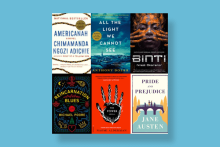
Reading was the safest way to travel this year — sometimes to another decade and another brand of violence, sometimes to a different continent or a different galaxy altogether. Below are Sojourners' editors' favorite books of the year. Most of these books came out years ago, but by reading them through the lens of 2020, we found new wisdom, escape, resonance, and hope.
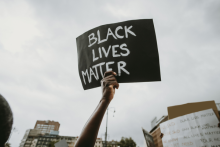
To be a Black woman in America and be relatively conscious, to paraphrase James Baldwin, is to be in a state of constant rage. Sweet holy songs don’t readily come to me. Christmas songs do not come to me. As a Black woman who happens to serve at a church that experienced white rage this past weekend when a group of demonstrators ripped down our Black Lives Matter banner and set it on fire, I am angry. And I’m tired.
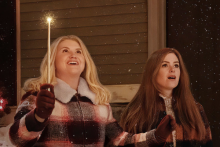
While Godmothered and its fairy are far from cinematic perfection, by the time the credits roll, Eleanor and Mackenzie have helped each other step more fully into who they both truly were meant to be. In this way, their relationship — minus the wand, the fairy dust, and any promise of true-love-happily-ever-afterness — more realistically resembles actual godparenting.

When I sat down to watch Netflix’s film adaptation of August Wilson’s play Ma Rainey’s Black Bottom, I was hoping to be uplifted by the Black excellence I was sure to find in a film helmed by Viola Davis and the late Chadwick Boseman. I was ready to exhale and escape. But while the anticipated excellence exceeded my high expectations, it didn’t take me long to realize that the uplift I’d hoped for would not be found in this story: Ma Rainey’s Black Bottom is a tragedy.

The public discourse around criminal justice reform largely revolves around releasing nonviolent offenders. But this narrow focus will never be enough to fundamentally alter the incarceration system. The majority of people in prison have been convicted of violent crimes, and they are habitually denied parole. True criminal justice reform is impossible until we include people convicted of violent crimes in the conversation.

I don’t live with the illusion that the holidays are cheery for everyone. Many of us find ourselves interacting with family and friends who do not have the same values we do. Here are four tips for navigating difficult relationships over the holidays — without compromising on dignity.
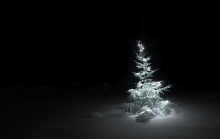
So as we participate in Advent this month, the Old Testament story of Job may be a helpful text to explore. Job addresses the enigma of suffering head-on, mincing no words but also not really answering the question of why we suffer. Perhaps, though, the simple freedom to question God and mourn our losses is just what we need this Christmas.
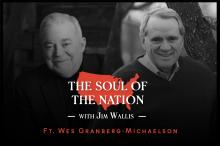
Rev. Jim Wallis speaks with Rev. Wes Granberg-Michaelson about his latest book, Without Oars: Casting Off Into a Life of Pilgrimage. Granberg-Michaelson shares ways people of faith can embrace the journey through the unknown and the uncomfortable as a way of life.

At a recent annual meeting, seminary presidents in the Southern Baptist Convention doubled down on the SBC’s dismissal of “critical race theory,” which examines the issues of embedded racism across institutions and culture in American society. CRT shows how white supremacy — the belief that some people are more valuable than other people because of their skin color — is not just a personal prejudice but a structural and societal practice in America.

Something you learn very quickly when you’re one of only half a dozen Jews in your upstate New York public school: No one really believes you when you tell them you don’t celebrate Christmas.
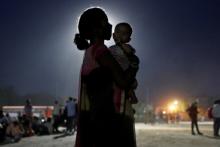
Like Mary, women the world over have had their childbirth plans disrupted by the pandemic, their path to motherhood rerouted, especially women of color.
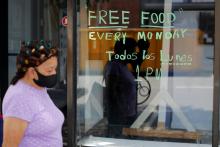
The U.S. set two disturbing records on Wednesday with more than 200,000 new coronavirus infections reported nationwide and 100,000 patients hospitalized in just one day. This brings the nation’s total to 14 million coronavirus cases and 272,000 fatalities since February. Robert Redfield, the director of the Centers for Disease Control and Prevention, said yesterday that the next three months are “going to be the most difficult time in the public health history of this nation.”

I don’t begrudge Ethan Hawke for wanting to play John Brown and producing this project. John Brown’s life was vast and exciting; his willingness to take up arms to defeat injustice mirrors conversations we still have in the church today about nonviolence.
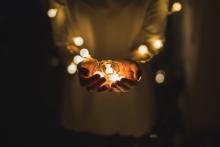
The Centers for Disease Control and Prevention recommend celebrating the holidays only with the people you live with. In this recommendation, I hear a resigned invitation to make it work with what we have. Let us draw lessons from those who have long had to make it work. And in that, I offer a prayer.

This election season has shown us just how deep and how wide the polarization is in this nation. It is disconcerting how easily we sell our birthright for political affiliation. We have replaced God with political idolatry.

Though Thanksgiving 2020 isn’t canceled—like just about everything else this past year—it needs to be different. Because of this, it is currently not safe to travel or gather in the ways many of us typically do. This need to do differently has left many Christians split and pitted against one another.
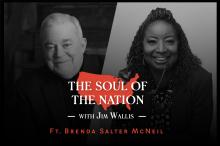
Rev. Jim Wallis speaks with Rev. Brenda Salter McNeil about her latest book, Becoming Brave. McNeil shares how to find the courage to pursue racial justice now and her leadership in the church during the Black Lives Matter movement.

For Adam, for coming home to Sojourners, for giving us the right person at the right time for this great transition, I am grateful. And I look forward to the road ahead for all of us.

What the reports have in common is long lists of sexual abuse victims and their broken families. The testimonies of survivors are instructive for the quality of their demand for justice and yet, to paraphrase Tolstoy, each unhappy survivor story “is unhappy in its own way.” Each story is unbearable in its details of the physical and psycho-spiritual torture and the chronic wounds that remain. But in other respects, the two reports could not be more different.
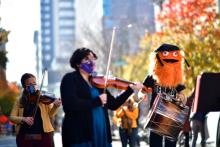
As this uncertain post-election period continues in the United States, we must be prepared to help calm communities, prevent violence, and protect each other through disciplined and strategic nonviolent action.